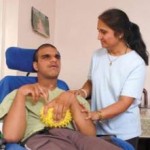
This new report is an important addition to the evidence base specifically on case management and more generally in terms of interventions to reduce hospital admissions but, consistent with other studies in this area, can’t give definitive answers. Much of what already exists in relation to virtual wards is anecdotal or lacks detail and it’s [read the full story…]









